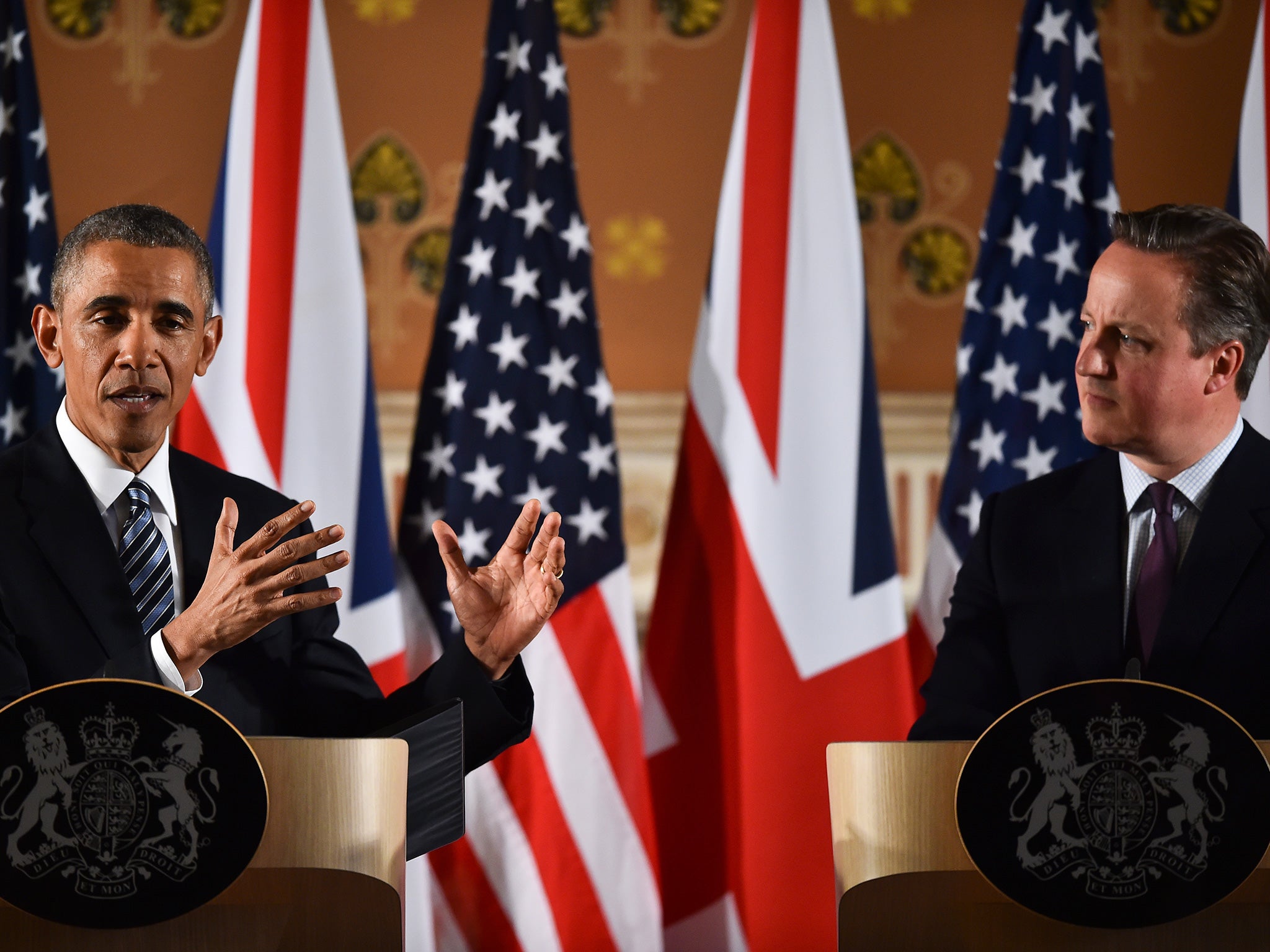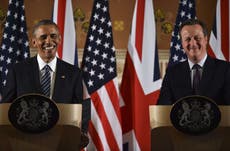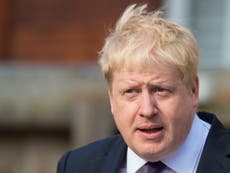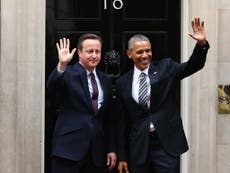Barack Obama's intervention in EU referendum debate could be a game-changer


Barack Obama’s intervention in the European Union referendum was more spectacular than many in the In campaign dared to hope for. They will now dare to dream that it might prove a game-changer in the tight referendum race.
The President’s blunt warning that the UK would go to “the back of the queue” when the US negotiates trade deals demolishes one of the Out campaign’s key planks – that Britain could be stronger economically outside the EU because other countries would still want to sell their goods and services to us. He could have said it more diplomatically, but chose to be remarkably direct. A factual statement from the horse’s mouth is worth much more than claims by the Outers or expert analysis. From David Cameron’s point of view, Downing Street could not have written a better script.
Mr Obama’s warning underlined his central point about power blocs in today’s world. At a press conference with Mr Cameron timed to catch the 6pm news bulletins, the President argued repeatedly that EU membership “magnifies the power of the UK, it doesn’t diminish it".
There was one small crumb of comfort for the Outers. The President acknowledged that the much-vaunted “special relationship” and “emotional, cultural and intellectual affinities” between the two countries would continue whatever the referendum decision. So would co-operation within Nato, the G7 and G20, he said.
Naturally, there was no hint of any differences between the Prime Minister and the President, who recently grumbled about “free riding” on America’s back over defence spending and Mr Cameron’s lack of a plan for the aftermath in Libya. Nothing was allowed to divert attention from the point of his visit, which was brought forward from July to take place before the EU referendum.
Some In campaigners claim to have met people on the doorstep who “get” the argument that Britain’s influence on the world stage would be weaker outside the EU. But I doubt it would play that strongly in the Dog and Duck. More likely to impress people there is what Mr Cameron's aides describe as “the cumulative effect” as undecided voters assess economic evidence from the Treasury and the International Monetary Fund – now bolstered by Mr Obama’s warning on trade — and look at which faces are in the rival camps.
True, voters have less respect for political leaders than they did at the time of the 1975 referendum, when an Out camp that included Tony Benn, Michael Foot and Enoch Powell was portrayed as a bit odd by its opponents. Today the public is less likely to take on trust the establishment’s word, and the Outers play up their credentials as insurgents. Their best hope is to make the referendum David versus Goliath.
This time, on one side we have Mr Obama, Mr Cameron, Angela Merkel, François Hollande and the leaders of China, India, Australia, New Zealand and Ireland all warning against Brexit. On the other side of the international fence? Well, Marine Le Pen, leader of France’s National Front, who is too extreme even for Nigel Farage. “It’s a question of ‘whose side do you want to be on?’,” one leading figure in the In camp smiled hopefully.





Join our commenting forum
Join thought-provoking conversations, follow other Independent readers and see their replies